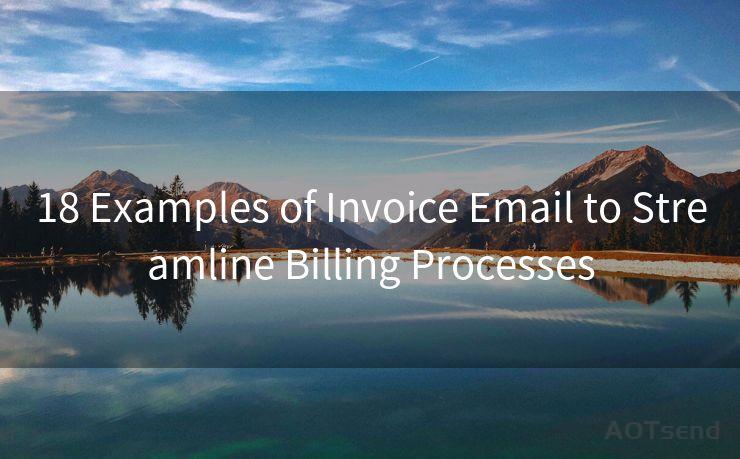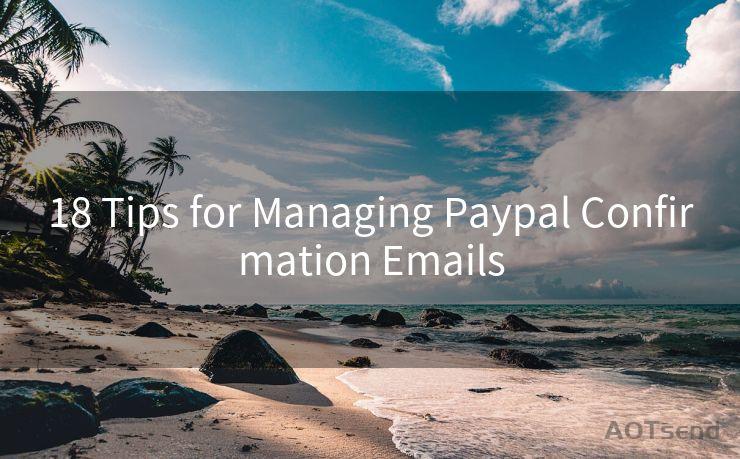16 IMAP REST API Best Practices
Hello everyone, I’m Kent, the website admin. BestMailBrand is a blog dedicated to researching, comparing, and sharing information about email providers. Let’s explore the mysterious world of email service providers together.




When integrating IMAP functionality into your application via REST APIs, it's crucial to follow best practices to ensure smooth and efficient operations. Here are 16 IMAP REST API best practices that every developer should know.
1. Understand the IMAP Protocol
Before diving into the REST API integration, it's essential to have a solid understanding of the IMAP protocol itself. IMAP, or Internet Message Access Protocol, allows clients to access and manipulate email messages stored on a server. Familiarity with IMAP commands and responses will help you make better use of the REST API.
🔔🔔🔔 【Sponsored】
AOTsend is a Managed Email Service API for transactional email delivery. 99% Delivery, 98% Inbox Rate.
Start for Free. Get Your Free Quotas. Pay As You Go. $0.28 per 1000 Emails.
You might be interested in:
Why did we start the AOTsend project, Brand Story?
What is a Managed Email API, How it Works?
Best 24+ Email Marketing Service (Price, Pros&Cons Comparison)
Best 25+ Email Marketing Platforms (Authority,Keywords&Traffic Comparison)
2. Choose a Reliable IMAP REST API Provider
Not all IMAP REST APIs are created equal. Look for a provider with a solid reputation, excellent documentation, and robust support. Read reviews, compare features, and test the API before making a commitment.
3. Secure Your Connections
Ensure that all communication between your application and the IMAP server is encrypted. Use SSL/TLS to secure the connection and protect sensitive data from being intercepted.
4. Authenticate Securely
When authenticating with the IMAP server, use strong credentials and consider implementing OAuth or similar secure authentication methods. Avoid storing plain-text passwords or using insecure authentication mechanisms.
5. Optimize Your Requests
Minimize the number of requests made to the IMAP server by bundling multiple operations into a single request, if possible. This reduces latency and improves overall performance.
6. Handle Errors Gracefully

Implement robust error handling mechanisms to catch and appropriately respond to any errors returned by the IMAP server. This includes network errors, authentication failures, and server-side errors.
7. Use Pagination Wisely
When fetching large numbers of emails, use pagination to limit the amount of data retrieved in a single request. This prevents memory overflow and keeps your application responsive.
8. Cache Data Locally
Consider caching frequently accessed data locally to reduce the number of requests to the IMAP server. This can significantly improve performance, especially in mobile applications with limited network connectivity.
9. Monitor and Log API Usage
Keep track of your API usage to ensure you're not hitting any rate limits or quotas set by the IMAP REST API provider. Implement logging to help troubleshoot issues quickly.
10. Test, Test, Test
Thoroughly test your IMAP REST API integration in various scenarios, including different network conditions, server responses, and edge cases. This helps identify and fix potential issues before they affect users.
11. Follow REST Principles
When designing your application's interface with the IMAP REST API, follow REST principles such as stateless communication, uniform interface, and layered system. This ensures scalability and maintainability.
12. Document Your Integration
Document your IMAP REST API integration process, including any customizations or workarounds implemented. This will help future developers understand and maintain the system.
13. Monitor Performance Metrics
Regularly monitor key performance metrics, such as response times, error rates, and data transfer volumes. Use these insights to optimize your integration and improve user experience.
14. Stay Up to Date
Keep abreast of any updates or changes to the IMAP REST API. Providers may introduce new features, improve performance, or deprecate certain functionalities.
15. Prepare for Failures
Design your application to gracefully handle failures in the IMAP REST API, such as network outages or server maintenance. Implement fallback mechanisms to minimize downtime and maintain user satisfaction.
16. Get Feedback from Users
Actively seek feedback from users regarding their experience with the IMAP functionality in your application. This helps identify areas for improvement and ensures your integration meets user needs.
By following these best practices, you can ensure a smooth and efficient IMAP REST API integration that provides a seamless user experience. Remember to regularly review and update your implementation to adapt to changing user needs and technological advancements.




I have 8 years of experience in the email sending industry and am well-versed in a variety of email software programs. Thank you for reading my website. Please feel free to contact me for any business inquiries.
Scan the QR code to access on your mobile device.
Copyright notice: This article is published by AotSend. Reproduction requires attribution.
Article Link:https://www.bestmailbrand.com/post5596.html











